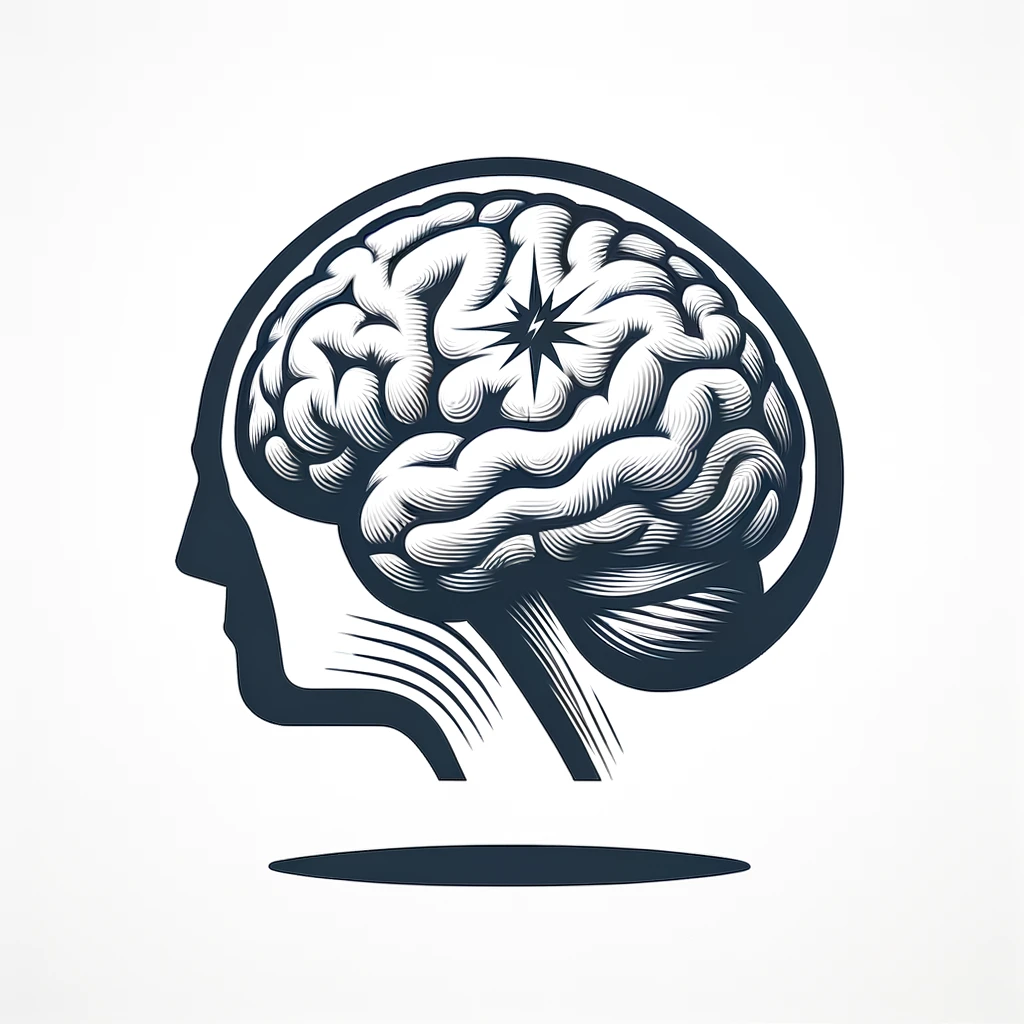A stroke occurs when blood flow to the brain is disrupted, leading to sudden neurological symptoms such as weakness and difficulty speaking. Immediate medical attention is crucial to minimize brain damage and prevent long-term disability.

What Is a Stroke, and Why Does It Happen?
The abrupt cutting off of blood supply to an area of the brain causes a cerebrovascular accident (CVA) or Stroke. A hemorrhagic stroke or an ischemic stroke, in which blood arteries supplying the brain are blocked, can cause this disruption.
Ischemic Stroke: This form of Stroke occurs more frequently and is caused by the blockage of an artery by either a blood clot or plaque (atherosclerosis), withdrawing blood from a particular region of the brain, partially or entirely.
Hemorrhagic Stroke: The brain can suffer a vascular stroke if a blood artery bursts and causes bleeding into nearby tissues. This can be caused by conditions such as high blood pressure, aneurysms, or other vascular abnormalities.
Risk Factors for Stroke:
Hypertension (High Blood Pressure): A significant factor in the risk of Stroke.
Smoking: Increases the risk of blood clots.
Diabetes: Can damage blood vessels over time.
High Cholesterol: Increases the risk of atherosclerosis.
Age: The risk of stroke increases with age.
Family History: A family history of Stroke may increase the risk.
Gender: Before menopause, men face a greater risk than women; however, following menopause, the risk becomes equal for both sexes.
Former Stroke or Transient Ischemic Attack (TIA): Having a history of Stroke or TIA increases the risk of future strokes.
Symptoms of Stroke:
Experiencing a sudden loss of feeling or strength in a limb, particularly on one side of the body.
Experiencing a rapid loss of cognition and difficulty articulating or comprehending spoken language.
Either eye's vision suddenly becomes impaired.
Sudden severe headache with no known cause.
Immediate Treatment:
Quick action is required in a stroke, considered a medical emergency. Treatment options may include medication to dissolve blood clots (if it's an ischemic stroke) or surgery to repair blood vessels (if it's a hemorrhagic stroke).
Causes of Strokes:
Ischemic Stroke:
Thrombotic Stroke: causes issues when a clot develops in a blood vessel that delivers blood to the brain. The clot (thrombus) usually forms at the site of atherosclerosis, where fatty deposits (plaque) build up in the arteries.
Embolic Stroke: This occurs when foreign matter, such as a blood clot, develops in another part of the body (usually the heart) and makes its way to the brain via the bloodstream, stuck in a smaller artery and preventing blood circulation.
Hemorrhagic Stroke:
Intracerebral Hemorrhage: The brain develops hematomas when blood squirts out of a broken blood vessel and pools in the brain tissue around it. A significant contributor to the development of this form of Stroke is hypertension, sometimes known as high blood pressure.
The subarachnoid haemorrhage causes bleeding in the subarachnoid space, a narrow opening between the brain and its protective layers. Aneurysm rupture, a weak spot in the arterial wall that causes the blood vessel to bulge, is the leading cause.
Risk Factors for Stroke:
Several factors increase the risk of Stroke and can be categorized as non-modifiable and modifiable.
Non-Modifiable Risk Factors:
Age: Stroke risk rises with age, particularly beyond 55.
Gender: Stroke is more common in men, but it becomes more dangerous for women after menopause.
Family History: A family history of Stroke can contribute to an increased risk.
Modifiable Risk Factors:
Hypertension (High Blood Pressure): The single most important modifiable risk factor.
Smoking: Stroke risk is substantially elevated in people who smoke.
Diabetes: Vascular damage and an increased risk can result from uncontrolled diabetes.
High Cholesterol: Elevated cholesterol levels can accelerate Plaque buildup in arteries.
Physical Inactivity: Stroke risk is elevated in individuals who do not exercise regularly.
Obesity: Stroke risk factors include being overweight or obese.
Excessive Alcohol Consumption: Heavy drinking can raise blood pressure and contribute to stroke risk.
Atrial Fibrillation: Blood clots, which can occur as a result of an abnormal heart rhythm, raise the risk of Stroke.
Strokes Cure:
The kind of Stroke, the degree of symptoms, and the speed with which therapy is started are all variables that affect how effective treatment is.
Here are some aspects of stroke management:
- Emergency Treatment: The most common type of ischemic Stroke is prompt treatment with clot-busting medications like tissue plasminogen activator (tPA) or endovascular procedures, which can help eliminate the blood clot and get blood flowing again to the brain. These interventions are time-sensitive, and the phrase "Time is brain" emphasizes the importance of seeking immediate medical attention.
- Rehabilitation: After the acute phase, rehabilitation is critical to stroke recovery. Restoring movement may necessitate a combination of speech, occupational, and physical therapy to improve fine motor skills and address speech and communication difficulties.
- Medications: Depending on the underlying causes and conditions, individuals who have had a stroke may be prescribed medications to manage risk factors such as high blood pressure, high cholesterol, and diabetes. Anticoagulants or antiplatelet drugs might also be prescribed to reduce the risk of blood clots.
- Surgery: To fix the problems that caused the Stroke in the first place, surgery may be necessary in some instances. For example, surgery may be performed to repair an aneurysm or to remove plaque from arteries.
- Lifestyle Changes: Preventing more strokes requires committing to a healthy lifestyle. This encompasses a wide range of behaviors, such as controlling one's weight, getting enough exercise, not smoking, and keeping chronic diseases like diabetes under control.
Stroke Prevention:
Critical strategies for stroke prevention:
Manage Hypertension (High Blood Pressure): High blood pressure is the leading cause of strokes. To control hypertension, it is essential to monitor blood pressure regularly and take medication or make lifestyle modifications as directed.
Quit Smoking: Stroke risk factors include smoking. Reducing the risk of Stroke and improving general health are two of the many benefits of quitting smoking.
Control Diabetes: Manage blood sugar levels through medication, lifestyle changes, and regular monitoring. Proper diabetes management helps reduce the risk of Stroke.
Maintain a Healthy Diet: Most of your daily caloric intake should come from fruits, vegetables, whole grains, and lean proteins. Cut back on salt, cholesterol, saturated and trans fats. Overall, vascular health can be improved by adhering to a heart-healthy diet.
Engage in Regular Physical Activity: Frequent exercise has many health benefits, including helping with weight maintenance, lowering blood pressure, and increasing cardiovascular health. Make it a goal to engage in aerobic activity for a total of 150 minutes per week at a moderate intensity.
Manage Cholesterol Levels: Maintain healthy cholesterol levels with a balanced diet, frequent physical activity, and, if required, the medicine a doctor prescribes.
Limit Alcohol Consumption: If you consume alcohol, do so in moderation. Consuming an excessive amount of alcohol raises blood pressure and the probability of a stroke.
Identify and Manage Atrial Fibrillation (AFib): The risk of blood clots and strokes increases in patients with atrial fibrillation (AFib). Individuals with AFib may be prescribed anticoagulant medications to reduce the risk of clot formation.
Maintain a Healthy Weight: Overweight and obese people have a greater risk of Stroke. Getting and staying at a healthy weight is essential to reduce this risk by eating right and exercising regularly.
Seek Prompt Medical Attention: When you experience symptoms that are consistent with having a stroke, such as sudden numbness or weakness, difficulty speaking, or severe headache, seek emergency medical attention immediately. Early intervention can minimize damage and improve outcomes.
Regular Health Check-ups: Regular check-ups with healthcare professionals allow for the monitoring and managing risk factors. Follow healthcare recommendations and take prescribed medications as directed.
symptoms of stroke
A stroke is a medical emergency that occurs when blood flow to the brain is interrupted or reduced, causing brain cells to die. This can result in sudden neurological symptoms such as weakness, numbness, difficulty speaking, or vision problems. Immediate treatment is essential to prevent permanent brain damage and disability.




